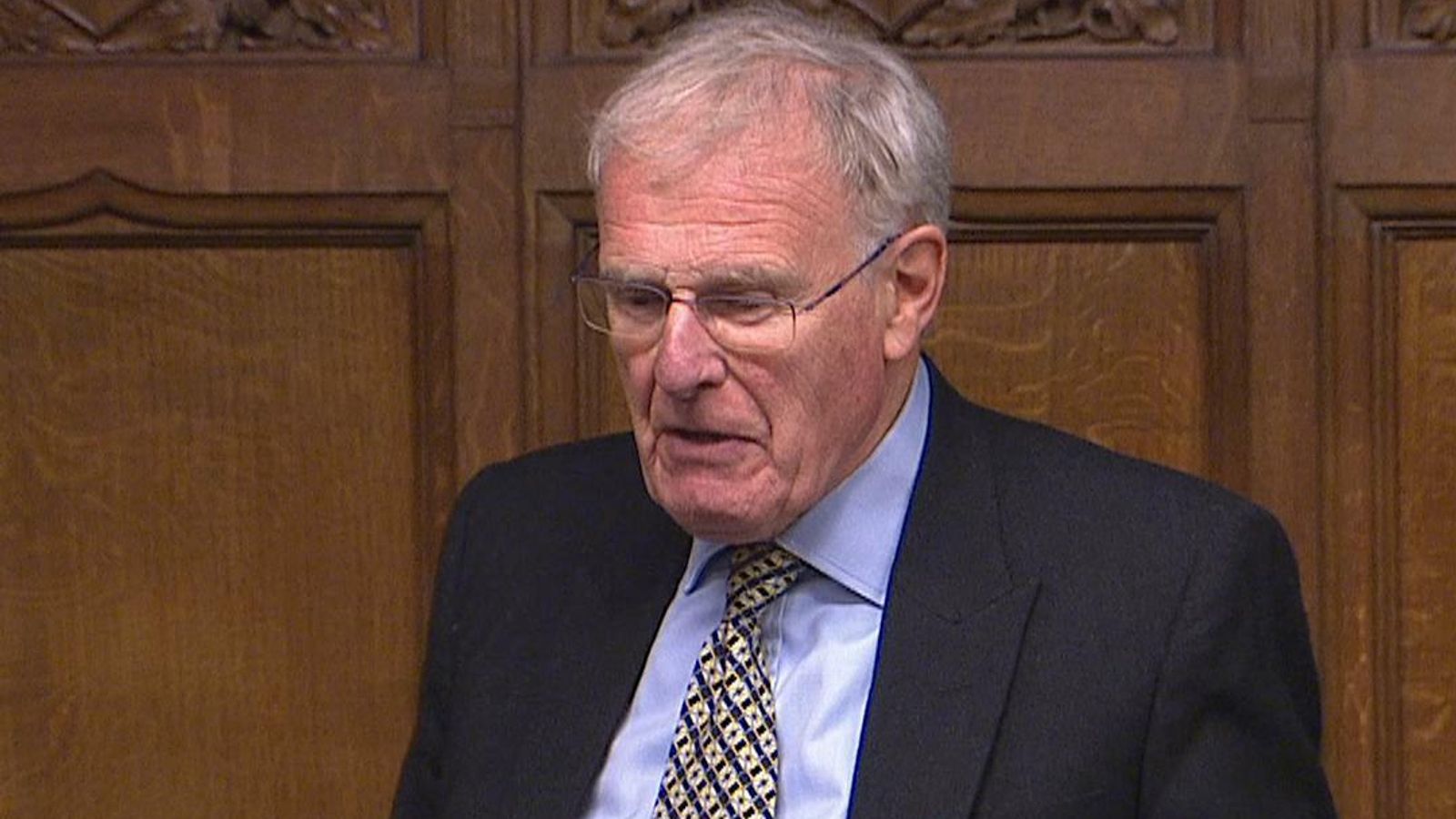A Conservative MP has claimed concerns about sexual harassment have “morphed into an institutional misandry”, as he warned the Commons about “the impact of sexual politics” on men.
MPs today approved a new bill – proposed by former Tory minister Greg Clark – that would make harassing a person in public because of their sex illegal, and it has cross-party support.
The government also revealed it backed the policy last December after former home secretary Priti Patel held a consultation on the issue.
A number of charities have campaigned for street harassment to be outlawed, with Plan International saying 75% of girls, some as young have 12, have experienced some form of public sexual harassment in their lifetime.
But veteran backbencher Sir Christopher Chope used today’s debate to try to add a number of amendments to the proposed law, and said discussions about the topic could be contributing to male mental health problems.
After saying he wanted to “ensure that emphasis was given to the fact that this bill applies to men and women equally”, Sir Christopher added: “The reason I think this is very important at the moment is because of a growing belief among [psychiatry] experts… about the impact of sexual politics, as it is called, on young men.”
Please use Chrome browser for a more accessible video player
Quoting at length from an article in the Spectator magazine, he said men were “routinely presented as inherently dangerous, aggressive, animalistic and incapable of controlling their own instincts”, and that boys were now being viewed as “potential perverts” in schools.
Woman gets £90,000 compensation after boss slapped her bottom in staff meeting
Public sexual harassment set to be punishable by up to two years in prison
Emotional abuse and sexual misconduct ‘systemic’ in US women’s soccer, report finds
He also said boys came out of the COVID lockdown “into this slightly hysterical atmosphere – don’t touch, that’s inappropriate, that’s assault – and they are being treated as guilty until proven innocent”.
And he claimed “workless” men were “almost being discouraged or intimidated into not going out on to the street, not only not finding jobs, but not finding girlfriends”.
The Tory MP said: “There seems to be an inability to hold two notions in our heads – that sexual assault is bad and that treating men as inherent sex pests is also bad.
“A reasonable worry about assault appears to have morphed into an institutional misandry.”
Sir Christopher added: “There is a lack of recognition that, as with all crimes, the proportion of perpetrators is vanishingly small, the awful behaviour of a few is leading to the mistreatment of all.
“The consequences of all this, and let’s be extremely careful with language that we use, is that the situation which is already bad in relation to the mental health issues of boys and young men is going to get even worse.”
New law sends ‘powerful message’
Following today’s debate, MPs passed the Protection from Sex-based Harassment in Public Bill and sent it to the Lords for the next stage of its parliamentary journey before becoming law.
Mr Clark called it a “historic day”, adding: “For the first time in our history, deliberately harassing, following, shouting degrading words at, making obscene gestures at women and girls in public places – and yes, on occasion men and boys in public places – because of their sex, with the deliberate intention to cause them alarm or distress, will be a specific offence, and a serious one at that.
“The astonishing thing is that it hasn’t be so until now.”
The bill also won the support of Labour, with MP Stella Creasy telling the House: “Misogyny is driving crimes against women and girls. A very simple statement, but a very clear recognition in this legislation for the first time ever that women are being targeted simply because they are women.
“At the moment in our society it is women who are paying the price for our failure to understand how misogyny has driven crimes against them and to recognise that within the law.
“By passing this legislation we are sending a powerful message to our young men that they do deserve better than that caricature of boys will be boys.”








